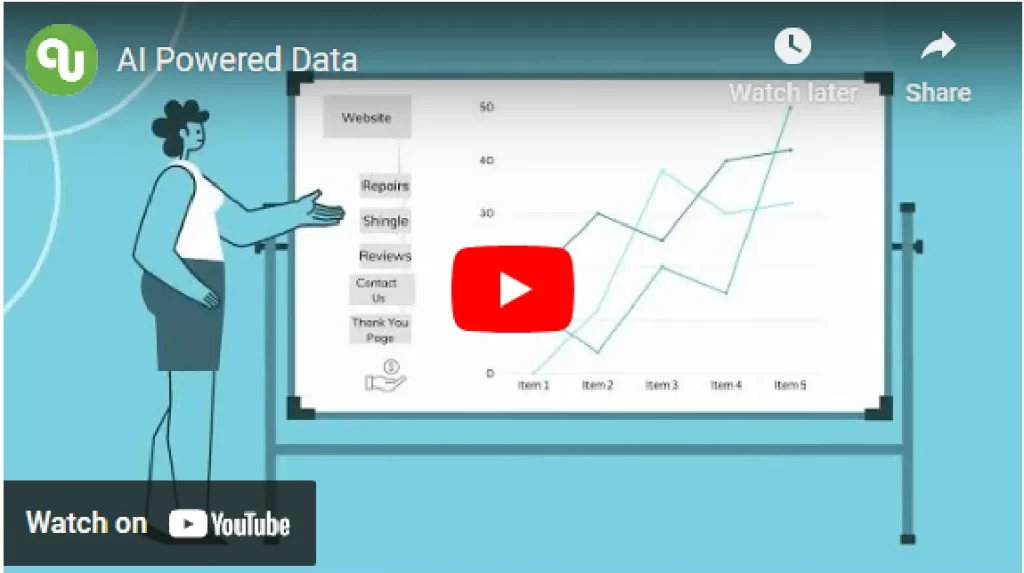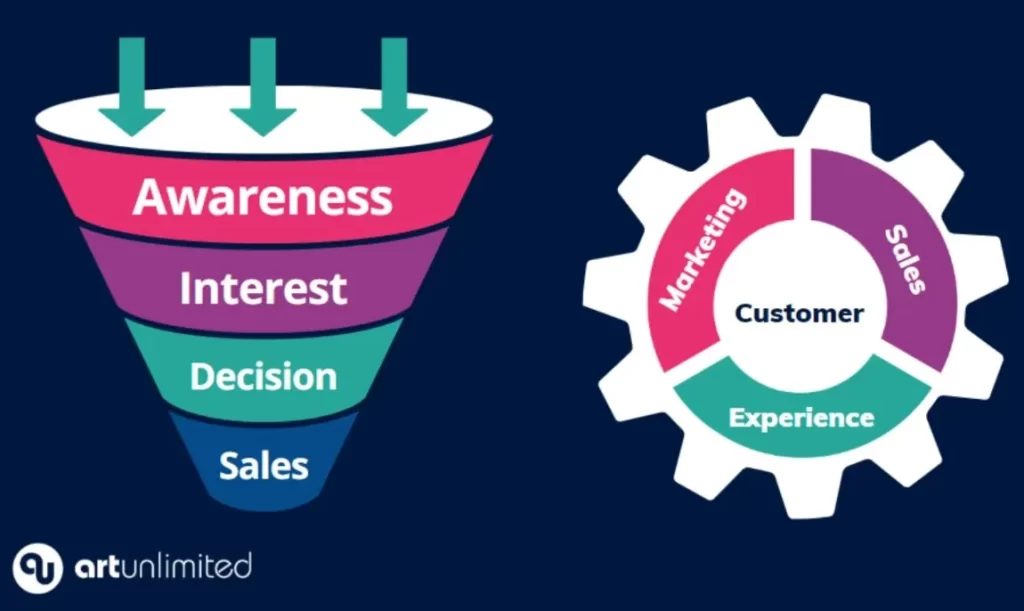GA4 Made Easy: A Simplified Guide to Google Analytics 4
The long awaited launch of Google’s latest analytics evolution is here and there is no shortage of information cascading through cyberspace on how to use it. From email blasts to vlogging to comprehensive Skillshops, Google has left no stone unturned on the information superhighway. For users who need a practical guide on the difference between Universal Analytics and Google Analytics 4 (and do not have the time to earn a veritable PhD in Google) we have compiled this simple guide to the key things to know about GA4.
Understanding How Users Work
One thing that Google is really good at is understanding what people want to do with the internet. That is why they have stayed consistently at the top of leading search engines. The newest changes are an example of this understanding. Previously, Universal Analytics (UA) tracked user sessions, GA4 tracks events. Let’s look at an example.
Sarah gets a call from her husband that there is a leak in the roof while she is at work. She takes out her phone, goes to Google and types in “roofer near me” and reaches Perfect Roof Repair’s website. She writes down their name and gets back to work. Later at home, she and her husband look the company up on her laptop and give the company a call to come out and repair the roof.
Under universal analytics, Sarah’s search was a different session from her phone than it was at home on her laptop. Making a decision based on website traffic would be misleading because it was tracking the same people twice.
GA4 gives you a complete picture of how your customers behave across different platforms such as websites and mobile apps. It is able to recognize the continuation of Sarah’s journey from her phone to her computer as one user.
With Events rather than Sessions providing more accurate data you can find out which marketing channels bring you the most customers, learn about their preferences, and improve their experience. This knowledge lets you create targeted marketing campaigns that reach the right people, which leads to more customers and increased loyalty.
AI-Powered Optimization Assistance
Just like the mountain of information available about the platform itself, the data that can be collected in Google Analytics can be overwhelming. To help make the information more user-friendly and lean into the AI wave of the future, GA4 has started using machine learning. The AI-powered features of GA4 automatically analyze patterns in the collected data to identify user behavior.
With GA4, it is easier to know with which landing pages your customers are engaging and how that is affecting your lead generation. Businesses can identify high-value customer segments and tailor their marketing efforts accordingly, resulting in more personalized and effective campaigns.


A New Perspective On Privacy
User privacy is a critical topic in the world of analytics right now. Where previously website cookies had nearly free reign to track user data, there is a higher expectation of privacy at play now with new regulations such as the GDPR and CCPA. GA4 offers features built to respect customers’ privacy preferences and comply with regulations while balancing the business need for actionable data. Some key updates include:
User IP addresses are no longer collected or stored.
New options to restrict location-specific data.
More data retention options that can be manually updated.
GA4 uses advanced technology like machine learning and mathematical algorithms to give businesses insights and predictions. This balance between privacy and powerful insights helps businesses get important data while also protecting user privacy, building trust, and following privacy rules.
A Practical Look
There are three practical aspects of Google Analytics 4 that are helpful to be aware of with the transition from UA. These are omnichannel reporting, customizable dashboards, and general function differences between the two versions.
Omnichannel Reporting
The shift has been occurring in marketing in the last few years from a sales approach to a whole company approach. It is no longer a game of powerful ads, but a game of being a company, internally and externally, that consumers want to partner with. GA4’s new reporting embraces this shift and extends it into sales.
UA reporting focused on the market, attracting users and converting them into customers, each data gathering point was siloed. GA4 reporting lets you see all of your data streams connected in one property. If you have multiple websites and apps, you can still see your customers journey collectively. It is customer-centric, rather than a funnel approach.
Customizable Dashboards
When GA4 first rolled out there were some complaints about missing features. In most cases, though, it turned out that the users had missed that the features they were looking for were available to set up and fully customizable.
GA4 offers a section called Explore that combines some of the user-friendly features of Looker Studio (formerly Data Studio) with the custom UA dashboards. GA4 also offers space to set up detailed custom conversion tracking to help maximize marketing campaigns and truly nail down the journey the customer is taking from click to close.
The General Function
There is one sticking point here that is tripping up fans of Universal Analytics. The structure to make all of these ideological shifts in GA4 changed the navigation of UA considerably. Year-over-year data is likely to be viewed somewhat differently because the metrics and measurements have changed. From Events to Sessions, from siloed data banks to fluid streams, a side-by-side comparison in 2024 may not reflect exactly the same as users have viewed it in the past. While most of the same information is available users will likely be viewing it in different ways and in different areas of GA4.
Going Forward
Google Analytics 4 (GA4) is here and it is the standard in data collection and analysis for search engines right now. In addition to this guide, there are many resources available to get a deeper understanding of the change from Universal Analytics including a free certification from Google’s own skillshop. Contact us today to learn more on using your data to build growth and take your marketing to the next level!



